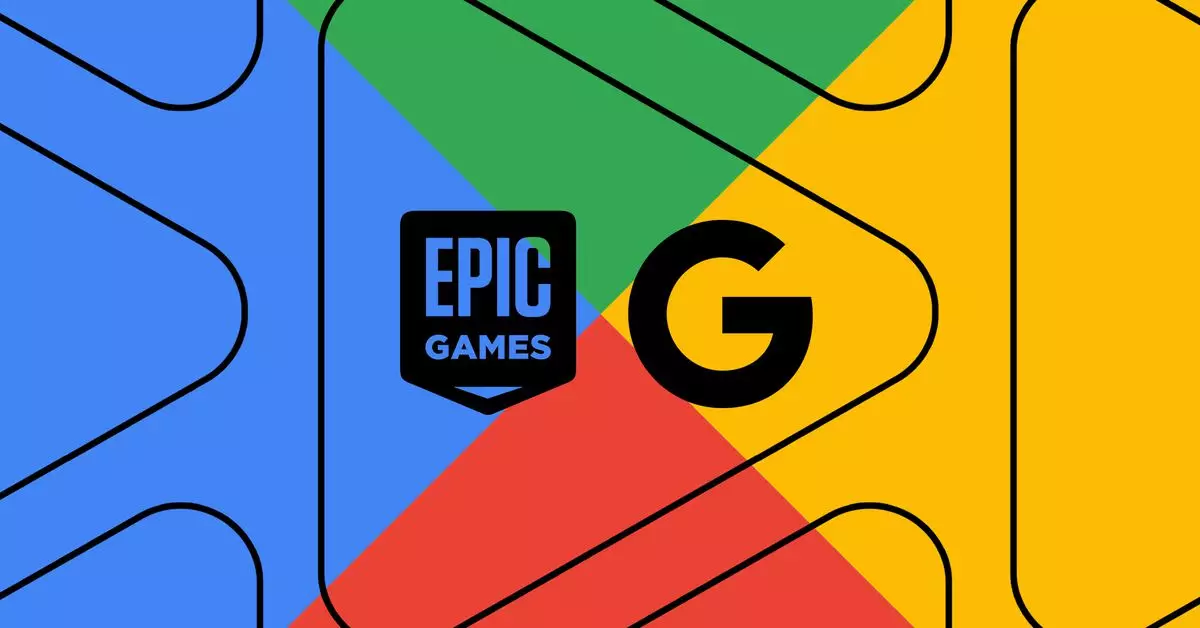In a significant legal battle that marked the intersection of technology and antitrust law, Judge James Donato has delivered a ruling that fundamentally alters the competitive landscape of mobile application distribution. The verdict emerging from the Epic Games vs. Google case establishes that the Google Play app store has operated as an illegal monopoly. This landmark decision not only enforces changes within the Google ecosystem but also catalyzes a broader discussion on the future of app marketplaces amidst evolving regulatory scrutiny.
Epic Games initiated its litigation against Google on August 13, 2020, coinciding with its concurrent lawsuit against Apple. Both cases emerged from Epic’s controversial attempt to circumvent the 30% fees imposed on in-app purchases—the catalyst being a surprise update to the immensely popular game Fortnite. This strategic move led to Epic’s removal from both app stores and subsequently ignited a wider movement known as #FreeFortnite. The lawsuits painted a vivid picture of how both Apple and Google wield tremendous power over developers, prompting a reexamination of their operational practices.
The ruling enforces a three-year period during which Google must open its Play Store to competition. Specifically, this means allowing rival third-party app stores to thrive within the Google ecosystem. The decision mandates that developers must be informed about alternative payment methods and avenues for distributing their apps outside of the Google Play Store. The ramifications of this ruling extend far beyond the particularities of app distribution; they unsettle the longstanding 30% gatekeeping fee model that has been standard across both Apple and Google platforms.
As part of the ruling, Judge Donato placed restrictions on Google’s practices, effectively dismantling several anti-competitive behaviors previously employed by the tech giant. From prohibiting Google Pay Billing requirements to preventing Google from making exclusive deals with developers, the judicial mandate significantly rotates the balance of power towards developers. Furthermore, Google is currently barred from offering financial incentives to manufacturers or carriers for pre-installing the Play Store or dissuading the installation of competing app stores.
Despite the newfound freedoms granted to developers, the ruling ensures that Google retains a degree of oversight related to safety and security. While it must facilitate competition and open access to its platform, Google can still implement necessary measures to ensure the integrity of the Google Play ecosystem. Judge Donato has specified that these measures should be reasonable, well-defined, and narrowly focused, enabling a semblance of control while still adhering to the spirit of the ruling.
Moreover, the court has established a technical committee—a collaborative oversight entity chosen jointly by Epic and Google—to address any disputes arising from the implementation of this ruling. This framework is intended to create a balanced approach to monitoring, ensuring that the transition unfolds smoothly while protecting the interests of developers and consumers alike.
In light of the ruling, Google has already indicated plans to appeal. This likely means we will witness a prolonged legal battle reminiscent of Apple’s response to its own lawsuit with Epic. By seeking to halt the implementation of Judge Donato’s rulings, Google aims to stave off the immediate impact while preparing a defense that justifies its long-established practices.
The future of app distribution is now caught in a delicate balance of regulatory oversight, developer autonomy, and Google’s corporate interests. As developers begin adapting to the changing policies, the app ecosystem might see a shift towards diversification and innovation, unencumbered by monopolistic barriers. However, the forthcoming legal maneuvers by Google could stall these developments and further complicate the landscape.
The verdict in Epic Games vs. Google represents a critical turning point in the quest for fair competition in the app marketplace. It sends a clear message to both Google and Apple that monopolistic practices will be scrutinized and challenged. As developers navigate this new landscape, consumers may ultimately benefit from greater choices and competitive pricing.
As this story unfolds, it is imperative to keep an eye on how the ruling will affect industry standards and practices. With the judicial system standing resolutely against monopolistic practices, we may well be on the cusp of a transformative era in mobile technology that champions innovation and consumer rights over corporate dominance. The impact of this ruling will resonate across not just Google’s marketplace but also the entire tech industry, redefining the rules of engagement between platforms and developers in the years to come.


Leave a Reply